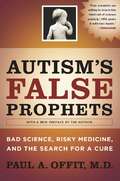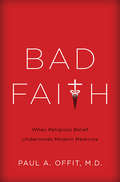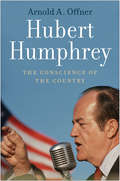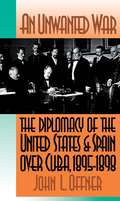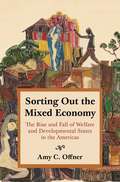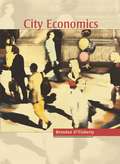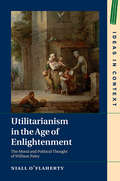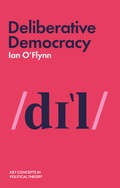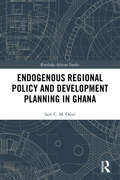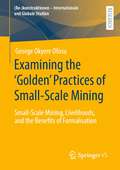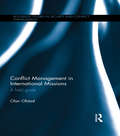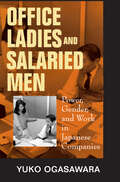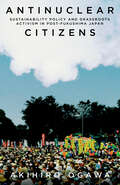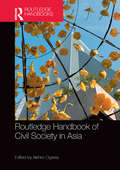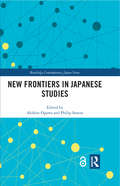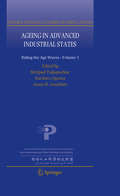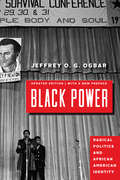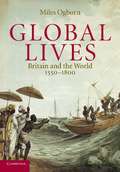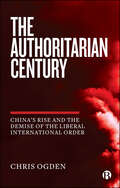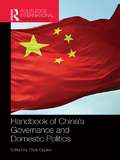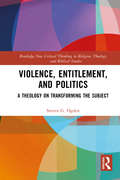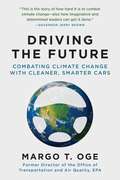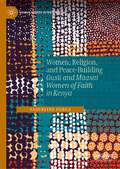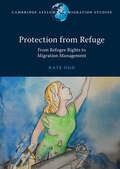- Table View
- List View
Autism's False Prophets: Bad Science, Risky Medicine, and the Search for a Cure
by Paul OffitA London researcher was the first to assert that the combination measles-mumps-rubella vaccine known as MMR caused autism in children. Following this "discovery," a handful of parents declared that a mercury-containing preservative in several vaccines was responsible for the disease. If mercury caused autism, they reasoned, eliminating it from a child's system should treat the disorder. Consequently, a number of untested alternative therapies arose, and, most tragically, in one such treatment, a doctor injected a five-year-old autistic boy with a chemical in an effort to cleanse him of mercury, which stopped his heart instead. Children with autism have been placed on stringent diets, subjected to high-temperature saunas, bathed in magnetic clay, asked to swallow digestive enzymes and activated charcoal, and injected with various combinations of vitamins, minerals, and acids. Instead of helping, these therapies can hurt those who are most vulnerable, and particularly in the case of autism, they undermine childhood vaccination programs that have saved millions of lives. An overwhelming body of scientific evidence clearly shows that childhood vaccines are safe and does not cause autism. Yet widespread fear of vaccines on the part of parents persists. In this book, Paul A. Offit, a national expert on vaccines, challenges the modern-day false prophets who have so egregiously misled the public and exposes the opportunism of the lawyers, journalists, celebrities, and politicians who support them. Offit recounts the history of autism research and the exploitation of this tragic condition by advocates and zealots. He considers the manipulation of science in the popular media and the courtroom, and he explores why society is susceptible to the bad science and risky therapies put forward by many antivaccination activists.
Bad Faith: When Religious Belief Undermines Modern Medicine
by Paul A. OffitIn recent years, there have been major outbreaks of whooping cough among children in California, mumps in New York, and measles in Ohio’s Amish country--despite the fact that these are all vaccine-preventable diseases. Although America is the most medically advanced place in the world, many people disregard modern medicine in favor of using their faith to fight life threatening illnesses. Christian Scientists pray for healing instead of going to the doctor, Jehovah’s Witnesses refuse blood transfusions, and ultra-Orthodox Jewish mohels spread herpes by using a primitive ritual to clean the wound. Tragically, children suffer and die every year from treatable diseases, and in most states it is legal for parents to deny their children care for religious reasons. In twenty-first century America, how could this be happening? In Bad Faith, acclaimed physician and author Dr. Paul Offit gives readers a never-before-seen look into the minds of those who choose to medically martyr themselves, or their children, in the name of religion. Offit chronicles the stories of these faithful and their children, whose devastating experiences highlight the tangled relationship between religion and medicine in America. Religious or not, this issue reaches everyone--whether you are seeking treatment at a Catholic hospital or trying to keep your kids safe from diseases spread by their unvaccinated peers. Replete with vivid storytelling and complex, compelling characters, Bad Faith makes a strenuous case that denying medicine to children in the name of religion isn’t just unwise and immoral, but a rejection of the very best aspects of what belief itself has to offer.
Hubert Humphrey: The Conscience of the Country
by Arnold A. OffnerOne of the great liberal politicians of the twentieth century, rediscovered in an important, definitive biography Hubert Humphrey (1911–1978) was one of the great liberal leaders of postwar American politics, yet because he never made it to the Oval Office he has been largely overlooked by biographers. His career encompassed three well†‘known high points: the civil rights speech at the 1948 Democratic Convention that risked his political future; his shepherding of the 1964 Civil Rights Act through the Senate; and his near†‘victory in the 1968 presidential election, one of the angriest and most divisive in the country’s history. Historian Arnold A. Offner has explored vast troves of archival records to recapture Humphrey’s life, giving us previously unknown details of the vice president’s fractious relationship with Lyndon Johnson, showing how Johnson colluded with Richard Nixon to deny Humphrey the presidency, and describing the most neglected aspect of Humphrey’s career: his major legislative achievements after returning to the Senate in 1970. This definitive biography rediscovers one of America’s great political figures.
An Unwanted War
by John L. OffnerOffner clarifies the complex relations of the United States, Spain, and Cuba leading up to the Spanish-American War and contends that the war was not wanted by any of the parties but was nonetheless unavoidable. He shows that a final round of peace negotiations failed in large part because internal political constraints limited diplomatic flexibility.
Sorting Out the Mixed Economy: The Rise and Fall of Welfare and Developmental States in the Americas (Histories of Economic Life #16)
by Professor Amy C. OffnerThe untold story of how U.S. development efforts in postwar Latin America helped lead to the dismantling of the U.S. welfare stateIn the years after 1945, a flood of U.S. advisors swept into Latin America with dreams of building a new economic order and lifting the Third World out of poverty. These businessmen, economists, community workers, and architects went south with the gospel of the New Deal on their lips, but Latin American realities soon revealed unexpected possibilities within the New Deal itself. In Colombia, Latin Americans and U.S. advisors ended up decentralizing the state, privatizing public functions, and launching austere social welfare programs. By the 1960s, they had remade the country’s housing projects, river valleys, and universities. They had also generated new lessons for the United States itself. When the Johnson administration launched the War on Poverty, U.S. social movements, business associations, and government agencies all promised to repatriate the lessons of development, and they did so by multiplying the uses of austerity and for-profit contracting within their own welfare state. A decade later, ascendant right-wing movements seeking to dismantle the midcentury state did not need to reach for entirely new ideas: they redeployed policies already at hand.In this groundbreaking book, Amy Offner brings readers to Colombia and back, showing the entanglement of American societies and the contradictory promises of midcentury statebuilding. The untold story of how the road from the New Deal to the Great Society ran through Latin America, Sorting Out the Mixed Economy also offers a surprising new account of the origins of neoliberalism.
City Economics
by Brendan O'FlahertyThis introductory but innovative textbook on the economics of cities is aimed at students of urban and regional policy as well as of undergraduate economics. It deals with standard topics, including automobiles, mass transit, pollution, housing, and education but it also discusses non-standard topics such as segregation, water supply, sewers, garbage, fire prevention, housing codes, homelessness, crime, illicit drugs, and economic development. Its methods of analysis are primarily verbal, geometric, and arithmetic. The author achieves coherence by showing how the analysis of various topics reinforces one another. Thus, buses can tell us something about schools and optimal tolls about land prices. Brendan O’Flaherty looks at almost everything through the lens of Pareto optimality and potential Pareto optimality—how policies affect people and their well-being, not abstract entities such as cities or the economy or growth or the environment. Such traditionalism leads to radical questions, however: Should cities have police and fire departments? Should tax preferences for home ownership be repealed? Should public schools charge for their services? O’Flaherty also gives serious consideration to such heterodox policies as pay-at-the-pump auto insurance, curb rights for buses, land taxes, marginal cost water pricing, and sidewalk zoning.
The Economics of Race in the United States
by Brendan O'FlahertyBrendan O'Flaherty brings the tools of economic analysis-incentives, equilibrium, optimization, and more-to bear on contentious issues of race in the United States. In areas ranging from quality of health care and education, to employment opportunities and housing, to levels of wealth and crime, he shows how racial differences among blacks, whites, Hispanics, and Asian Americans remain a powerful determinant in the lives of twenty-first-century Americans. More capacious than standard texts, The Economics of Race in the United States discusses important aspects of history and culture and explores race as a social and biological construct to make a compelling argument for why race must play a major role in economic and public policy. People are not color-blind, and so policies cannot be color-blind either.<P><P> Because his book addresses many topics, not just a single area such as labor or housing, surprising threads of connection emerge in the course of O'Flaherty's analysis. For example, eliminating discrimination in the workplace will not equalize earnings as long as educational achievement varies by race-and educational achievement will vary by race as long as housing and marriage markets vary by race. No single engine of racial equality in one area of social and economic life is strong enough to pull the entire train by itself. Progress in one place is often constrained by diminishing marginal returns in another. Good policies can make a difference, and only careful analysis can figure out which policies those are.
Utilitarianism in the Age of Enlightenment: The Moral and Political Thought of William Paley (Ideas in Context #118)
by Niall O'FlahertyThis is the first book-length study of one of the most influential traditions in eighteenth-century Anglophone moral and political thought, 'theological utilitarianism'. Niall O'Flaherty charts its development from its formulation by Anglican disciples of Locke in the 1730s to its culmination in William Paley's work. Few works of moral and political thought had such a profound impact on political discourse as Paley's Principles of Moral and Political Philosophy (1785). His arguments were at the forefront of debates about the constitution, the judicial system, slavery and poverty. By placing Paley's moral thought in the context of theological debate, this book establishes his genuine commitment to a worldly theology and to a programme of human advancement. It thus raises serious doubts about histories which treat the Enlightenment as an entirely secular enterprise, as well as those which see English thought as being markedly out of step with wider European intellectual developments.
Deliberative Democracy (Key Concepts in Political Theory)
by Ian O'FlynnToday, deliberative democracy is the most widely discussed theory of democracy. Its proponents argue that important decisions of law and policy should ideally turn not on the force of numbers but on the force of the better argument. However, it continues to strike some as little more than wishful thinking. In this new book, Ian O’Flynn examines how the concept has developed over recent decades, the family disagreements which have emerged, and the criticisms that have been levelled at it. Grappling with the familiar charge that ordinary people lack the motivation and capacity for meaningful deliberation, O’Flynn considers the example of deliberative polls and citizens’ assemblies and critically assesses how such forums can fit within a broader democratic system. He then considers the implications of deliberative democracy for multicultural and multi-ethnic societies before turning to the prospects for the most ambitious deliberative project of all: global deliberative democracy. This book will be essential reading for students and scholars of democratic theory, as well as anyone who is curious about the prospects for more rational decision-making in an age of populist passion.
Endogenous Regional Policy and Development Planning in Ghana (Routledge African Studies)
by Sam C.M. OforiThis book examines regional development and planning in a poor administrative region of Ghana, assessing the effectiveness of the programmes and projects initiated to reduce poverty, disadvantage and deprivation. The author analyses the local context of institutions, planning legislation, broad external (exogenous) and internal (endogenous) influencing factors and forces. He then assesses how they have impacted the effectiveness of regional policy interventions aimed at social and economic development. Using applied planning principles, the book proposes policies to address the challenges of Local Economic Development (LED), urban regeneration and conservation, housing regeneration and regional sustainability in the developing world. This book will be of interest to students, scholars policy-makers and regional planning practitioners in urban and regional development and planning, geography and African Studies.
Examining the ‘Golden’ Practices of Small-Scale Mining: Small-Scale Mining, Livelihoods, and the Benefits of Formalisation ((Re-)konstruktionen - Internationale und Globale Studien)
by George Okyere OfosuScholarship on artisanal and small-scale mining (ASM) has often portrayed mining regions as ‘informal’ zones that suffer from environmental degradation problems. Water pollution and degraded landscapes, for example, have long been noted as the inevitable consequence of the operations of ASM. Such insistence on the institutional absences of ASM zones has dovetailed with a lack of academic attention to some of the ‘golden’ mining practices taking place there. Thus, this work seeks to (re)examine the topic of ‘development’ in ASM. The findings suggest that small-scale miners, contrary to popular perception, could be caretakers of the environment. In addition, emphasizing how the dynamic interplay between resources and environmental demands may come to support public policy, the findings illustrate, contrary to the dominant narrative, how the activities of small-scale mining operators can engender a win-win situation for both mining companies and local mining communities.
Conflict Management in International Missions: A field guide (Routledge Studies in Security and Conflict Management)
by Olav OfstadThis book serves primarily as a field guide and curriculum for organisations training personnel for conflict management missions abroad. Currently, a gap exists between practitioners and academia in the field of conflict management and peacebuilding. Few practitioners have studied conflict management, and few academics have experience as field workers. Conflict literature contains a range of important insights and analyses, but is useful only to a limited degree to practitioners. This book provides practitioners with a much needed guidebook which is easy to understand, academically solid and which identifies with their mission and helps them relate to real-time challenges in the field. The book focuses on a number of case studies, including peacebuilding efforts in East Timor, and offers a range of practical advice for persons about to embark on a mission, from the receipt of an appointment to establishment in the field and encountering the realities and practical challenges that handling conflicts may imply. This book will be of much interest to students of conflict management, peacebuilding and conflict resolution, as well as practitioners in the field.
Office Ladies and Salaried Men: Power, Gender, and Work in Japanese Companies
by Yuko OgasawaraIn large corporations in Japan, much of the clerical work is carried out by young women known as "office ladies" (OLs) or "flowers of the workplace." Largely nameless, OLs serve tea to the men and type and file their reports. They are exempt from the traditional lifetime employment and have few opportunities for promotion. In this engaging ethnography, Yuko Ogasawara exposes the ways that these women resist men's power, and why the men, despite their exclusive command of authority, often subject themselves to the women's control. Ogasawara, a Japanese sociologist trained in the United States, skillfully mines perceptive participant-observation analyses and numerous interviews to outline the tensions and humiliations of OL work. She details the subtle and not-so-subtle ways that OLs who are frustrated by demeaning, dead-end jobs thwart their managers and subvert the power structure to their advantage. Using gossip, outright work refusal, and public gift-giving as manipulative strategies, they can ultimately make or break the careers of the men. This intimate and absorbing analysis illustrates how the relationships between women and work, and women and men, are far more complex than the previous literature has shown.
Antinuclear Citizens: Sustainability Policy and Grassroots Activism in Post-Fukushima Japan (Anthropology of Policy)
by Akihiro OgawaFollowing the Great East Japan Earthquake on March 11, 2011, tsunamis engulfed the Fukushima Daiichi nuclear power plant located on Japan's Pacific Coast, leading to the worst nuclear disaster the world has seen since the Chernobyl crisis of 1986. Prior to this disaster, Japan had the third largest commercial nuclear program in the world, surpassed only by those in the United States and France—nuclear power significantly contributed to Japan's economic prosperity, and nearly 30% of Japan's electricity was generated by reactors dotted across the archipelago, from northern Hokkaido to southern Kyushu. This long period of institutional stasis was, however, punctuated by the crisis of March 11, which became a critical juncture for Japanese nuclear policymaking. As Akihiro Ogawa argues, the primary agent for this change is what he calls "antinuclear citizens"— a conscientious Japanese public who envision a sustainable life in a nuclear-free society. Drawing on over a decade of ethnographic research conducted across Japan—including antinuclear rallies, meetings with bureaucrats, and at renewable energy production sites—Ogawa presents an historical record of ordinary people's actions as they sought to survive and navigate a new reality post-Fukushima. Ultimately, Ogawa argues that effective sustainability efforts require collaborations that are grounded in civil society and challenge hegemonic ideology, efforts that reimagine societies and landscapes—especially those dominated by industrial capitalism—to help build a productive symbiosis between industry and sustainability.
Routledge Handbook of Civil Society in Asia
by Akihiro OgawaThe Routledge Handbook of Civil Society in Asia is an interdisciplinary resource, covering one of the most dynamically expanding sectors in contemporary Asia. Originally a product of Western thinking, civil society represents a particular set of relationships between the state and either society or the individual. Each culture, however, molds its own version of civil society, reflecting its most important values and traditions. This handbook provides a comprehensive survey of the directions and nuances of civil society, featuring contributions by leading specialists on Asian society from the fields of political science, sociology, anthropology, and other disciplines. Comprising thirty-five essays on critical topics and issues, it is divided into two main sections: Part I covers country specific reviews, including Japan, China, South Korea, India, and Singapore. Part II offers a series of thematic chapters, such as democratization, social enterprise, civic activism, and the media. As an analysis of Asian social, cultural, and political phenomena from the perspective of civil society in the post-World War IIera, this book will be useful to students and scholars of Asian Studies, Asian Politics, and Comparative Politics.
New Frontiers in Japanese Studies (Routledge Contemporary Japan Series)
by Akihiro Ogawa Philip SeatonOver the last 70 years, Japanese Studies scholarship has gone through several dominant paradigms, from ‘demystifying the Japanese’, to analysis of Japanese economic strength, to discussion of global interest in Japanese popular culture. This book assesses this literature, considering future directions for research into the 2020s and beyond. Shifting the geographical emphasis of Japanese Studies away from the West to the Asia-Pacific region, this book identifies topic areas in which research focusing on Japan will play an important role in global debates in the coming years. This includes the evolution of area studies, coping with aging populations, the various patterns of migration and environmental breakdown. With chapters from an international team of contributors, including significant representation from the Asia-Pacific region, this book enacts Yoshio Sugimoto’s notion of ‘cosmopolitan methodology’ to discuss Japan in an interdisciplinary and transnational context and provides overviews of how Japanese Studies is evolving in other Asian countries such as China and Indonesia. New Frontiers in Japanese Studies is a thought-provoking volume and will be of great interest to students and scholars of Japanese and Asian Studies.
Ageing in Advanced Industrial States: Riding the Age Waves - Volume 3 (International Studies in Population #8)
by Naohiro Ogawa Anne H. Gauthier Shripad TuljapurkarPopulation growth slowed across the world in the last decades of the 20th century, changing substantially our view of the future. The 21st century is likely to see the end to world population growth and become the century of population aging, marked by low fertility and ever-increasing life expectancy. These trends have prompted many to predict a gloomy future caused by an unprecedented economic burden of population aging. In response, industrialized nations will need to implement effective social and economic policies and programs. This is the final volume in a series of three. The papers included explore many examples and strengthen the basis for effective economic and social policies by investigating the economic, social, and demographic consequences of the transformations in the structures of population and family. These consequences include changes in economic behavior, both in labor and financial markets, and with regard to saving and consumption, and intergenerational transfers of money and care.
Black Power: Radical Politics and African American Identity
by Jeffrey O. OgbarExploring the profound impact of the Black Power movement on African Americans.Outstanding Academic Title, ChoiceIn the 1960s and 70s, the two most important black nationalist organizations, the Nation of Islam and the Black Panther Party, gave voice and agency to the most economically and politically isolated members of black communities outside the South. Though vilified as fringe and extremist, these movements proved to be formidable agents of influence during the civil rights era, ultimately giving birth to the Black Power movement.Drawing on deep archival research and interviews with key participants, Jeffrey O. G. Ogbar reconsiders the commingled stories of—and popular reactions to—the Nation of Islam, Black Panthers, and mainstream civil rights leaders. Ogbar finds that many African Americans embraced the seemingly contradictory political agenda of desegregation and nationalism. Indeed, black nationalism, he demonstrates, was far more favorably received among African Americans than historians have previously acknowledged. It engendered minority pride and influenced the political, cultural, and religious spheres of mainstream African American life for the decades to come.This updated edition of Ogbar's classic work contains a new preface that describes the book's genesis and links the Black Power movement to the Black Lives Matter movement. A thoroughly updated essay on sources contains a comprehensive review of Black Power–related scholarship. Ultimately, Black Power reveals a black freedom movement in which the ideals of desegregation through nonviolence and black nationalism marched side by side.
Global Lives: Britain and the World, 1550-1800
by Miles OgbornThis is a fascinating and unique account of Britain's rise as a global imperial power told through the lives of over forty individuals from a huge range of backgrounds. Miles Ogborn relates and connects the stories of monarchs and merchants, planters and pirates, slaves and sailors, captives and captains, reactionaries and revolutionaries, artists and abolitionists from all corners of the globe. These dramatic stories give new life to the exploration of the history and geography of changing global relationships, including settlement in North America, the East India Company's trade and empire, transatlantic trade, the slave trade, the rise and fall of piracy, and scientific voyaging in the Pacific. Through these many biographies, including those of Anne Bonny, Captain Cook, Queen Elizabeth I, Pocahontas, and Walter Ralegh, early modern globalisation is presented as something through which different people lived in dramatically contrasting ways, but in which everyone played a part.
The Authoritarian Century: China's Rise and the Demise of the Liberal International Order
by Chris OgdenThe rise of authoritarian movements presents an increasing illiberal trend in international affairs. A rapidly modernizing China is at the vanguard of this phenomenon. Does this signal the demise of Western democracy and the dawn of an authoritarian era in world politics? In this book, Chris Ogden argues that the world is on the verge of a capitulation to China’s preferred authoritarian order. As other world powers adopt such values, they are facilitating the normalization of this authoritarianism into a dominant global phenomenon. This shift, he says, will transform global institutions, human rights and political systems, and herald an authoritarian century.
Handbook of China’s Governance and Domestic Politics (Routledge International Handbooks Ser.)
by Chris OgdenThis Handbook provides an in-depth overview of how China is governed, how its domestic political system functions and the critical issues that it currently faces. Governed by the world’s largest political party in the world’s longest-ruling Communist regime, China is undergoing a transitional period of rapid economic and social development. How this period is managed will have significant implications for the Chinese state and its population concerning China’s governance structures and economy, as well as the country’s justice, public health, education and internal/external security concerns. This transition to a modern state is not without its challenges – particularly in terms of how the Chinese state deals with diverse issues such as social inequality, corruption, separatism, increasing individualism and political reform. China’s governance and domestic politics also have possible major global consequences, especially in the context of China's continued rise within the international system. This Handbook will improve understandings of the core national dynamics of this rise and, as levels of international interdependence with China increase, can offer vital insights concerning China's domestic attributes. Gaining a better knowledge of China's internal workings can also help better appreciate the multiple and varied problems that China’s leaders will face in the coming decades. Critically, many of the core internal issues facing China also have potential external repercussions, principally in terms of rising social unrest, nationalism, environmental degradation, resource shortages and attitudes towards globalization. This book aims to cover these issues and will help readers to fully comprehend China’s ongoing contemporary global significance.
Violence, Entitlement, and Politics: A Theology on Transforming the Subject (Routledge New Critical Thinking in Religion, Theology and Biblical Studies)
by Steven G. OgdenThis book is an exercise in political theology, exploring the problem of gender-based violence by focusing on violent male subjects and the issue of entitlement. It addresses gender-based violence in familial and military settings before engaging with a wider political context. The chapters draw on sources ranging from Michel Foucault, Judith Butler, and Étienne Balibar to Rowan Williams and Elisabeth Schüssler Fiorenza. Entitlement is theorized and interpreted as a gender pattern, predisposing subjects toward controlling behaviour and/or violent actions. Steven Ogden develops a theology of transformation, stressing immanence. He examines entitled subjects, predisposed to violence, where transformation requires a limit-experience that wrenches the subject from itself. The book also reflects on today’s pervasive strongman politics, where political rationalities foster proprietorial thinking and entitlement gender patterns, and how theology is called to develop counter-discourses and counter-practices.
Driving the Future: Combating Climate Change with Cleaner, Smarter Cars
by Margo T Oge Fred KruppNow in paperback, with a new foreword by Fred Krupp, an expert's illuminating preview of the cleaner, lighter, smarter cars of the future.In Driving the Future, Margo T. Oge portrays a future where clean, intelligent vehicles with lighter frames and alternative power trains will produce zero emissions and run at 100+ mpg. With electronic architectures more like those of airplanes, cars will be smarter and safer, will park themselves, and will network with other vehicles on the road to drive themselves. As the director of the EPA’s Office of Transportation and Air Quality, Oge was the chief architect behind the Obama administration’s landmark 2012 deal with automakers in the US market to double the fuel efficiency of their fleets and to cut greenhouse gas emissions in half by 2025. This was America’s first formal climate action using regulation to reduce emissions through innovation in car design.Offering an insider account of the partnership between federal agencies, California, environmental groups, and car manufacturers that led to the historic deal, Margo discusses the science of climate change, the politics of addressing it, and the lessons learned for policy makers. She also takes the reader through the convergence of macro trends that will drive this innovation over the next forty years and be every bit as transformative as those wrought by Karl Benz and Henry Ford. Driving the Future is for anyone who wants to know what car they’ll be driving in ten, twenty, or thirty years-and for everyone concerned about air quality and climate change now.
Women, Religion, and Peace-Building: Gusii and Maasai Women of Faith in Kenya (Human Rights Interventions)
by Jaqueline OgegaThis book explores the peacebuilding ideas and experiences of Maasai and Gusii women of faith in Kenya. Women of faith across the world have long demonstrated their leadership in peacebuilding. They have achieved this despite their underrepresentation in formal peacebuilding systems and the persistent lack of consideration for their critical contributions, and in the face of insecurity and violence against their very bodies. Their efforts include daily practices of sharing resources, building social cohesion, promoting human relations, and interlinking psychological, social, political, and spiritual encounters. This book provides a gender-responsive peacebuilding framework that leverages the intersectionality of women’s diverse identities and roles as they navigate both secular and religious spaces for peace. The book will appeal to researchers and teachers as well as practitioners and activists.
Protection from Refuge: From Refugee Rights to Migration Management (Cambridge Asylum and Migration Studies)
by Kate OggThe places in which refugees seek sanctuary are often as dangerous and bleak as the conditions they fled. In response, many travel within and across borders in search of safety. As part of these journeys, refugees are increasingly turning to courts to ask for protection, not from persecution in their homeland, but from a place of 'refuge'. This book is the first global and comparative study of 'protection from refuge' litigation, examining whether courts facilitate or hamper refugee journeys with a particular focus on gender. Drawing on jurisprudence from Africa, Europe, North America and Oceania, Kate Ogg shows that courts have transitioned from adopting robust ideas of refuge to rudimentary ones. This trajectory indicates that courts can play a powerful role in creating more just and equitable refugee protection policies, but have, ultimately, compounded the difficulties inherent in finding sanctuary, perpetuating global inequities in refugee responsibility and rendering refuge elusive.
